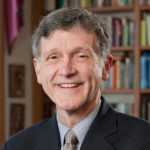 On Nov. 17, 1999, I met Muhammad Ali. It was at the Cathedral of the Assumption on 5th Street in Louisville, Ky., in a Cathedral Heritage Series of ecumenical gatherings. I was the preacher for an interfaith Thanksgiving service, and Muhammad Ali was receiving a lifetime service award for assorted humanitarian activities in his hometown and beyond.
On Nov. 17, 1999, I met Muhammad Ali. It was at the Cathedral of the Assumption on 5th Street in Louisville, Ky., in a Cathedral Heritage Series of ecumenical gatherings. I was the preacher for an interfaith Thanksgiving service, and Muhammad Ali was receiving a lifetime service award for assorted humanitarian activities in his hometown and beyond.
Just being there was a poignant moment. The cathedral, built in 1850, was the scene of Bloody Monday on Aug. 6, 1855, that infamous day of Protestant-generated anti-Catholic, anti-immigrant riots in which some 20 people were killed. In 1855, no one in Louisville, Protestant or Catholic, would have envisioned an interfaith service in that venerable Catholic sanctuary, in which a Baptist preached and an African-American Muslim received an interfaith award.
That night, I arrived at the newly renovated cathedral in the company of my great friend Father Clyde Crews, a Louisville native and Bellarmine University professor. Since we were early, Clyde suggested we slip into the sacristy at the back of the church. And there, leaning against the sacristy wall, stood Muhammad Ali. The shock of seeing him up close took our collective breaths away. Without thinking, I extended my hand, and murmured haltingly, “Mr. Ali, you’ve been a hero for me a long time.” Muhammad Ali smiled, and without a word, leaned down, and kissed me on the cheek. It was a split-second, time-marking moment etched in my memory.
While Clyde and I chatted with Ali’s remarkable spouse, Lonnie, the Champ, already gripped by Parkinson’s, remained silent, entertaining us with various magic tricks, like making a red cloth appear and disappear mysteriously. The service itself was a bit overwhelming, as we watched Ali receive hometown honors that were, in many ways, a long time coming.
The memory of those events swept over me on June 10 as we watched Ali’s memorial service, at once a local and international celebration of the breadth of his faith, the strength of his character, and the joy of his compassion. Secure in his Muslim faith, Ali left this world amid an array of voices that included Baptist pastor Kevin Cosby, radical rabbi Michael Lerner, Native American and Buddhist holy men, a student intern, the endearingly hilarious Billy Crystal, and former President Bill Clinton. Indeed, the service was a paean to American religious-ethnic-racial diversity; a witness against racist rhetoric and bad religion that all too easily rears its ugly head here and now.
In one of multiple early interviews rebroadcast after his death, Ali recounted his own struggles over race and religion. Growing up Baptist, he continually asked his mother, “Why is Jesus white?” noting that in all the pictures of Jesus, Mary and the angels, “everybody is white.” He then recalled his return to Louisville after winning a gold medal in the 1968 Olympics, going to a local restaurant and ordering two hot dogs. “We don’t serve Negroes,” the waitress told him. “That’s ok,” Ali replied, “I don’t eat them either. Bring me two hot dogs.” They threw him out.
“It was my home town,” he said, “where I went to church.” So the incongruity of segregation and “Christian America” led him to black Muslim leader Elijah Muhammad, and from there to Islam. The interview ends with Ali’s reflection on boxing and, by implication, religion: “Faith is taking a chance that you may lose.”
And he did take chances, renouncing his “slave name,” Cassius Clay, for the Islamic Muhammad Ali; refusing to register for the draft in opposition to the Vietnam War; having his boxing championship title revoked; and being sentenced to five years in prison. (The title was ultimately restored, and the prison sentence removed.) Ali took a chance on Islam, not knowing where it would take him, but believing it offered a freedom that the Christianity of the segregationist South could not. Perhaps Rev. Cosby said it for all of us who gamble on grace: “You have to bet on the Derby horse while it’s in the mud, not the winner’s circle.”
Barely two days after the nation bade farewell to the beloved Ali, a heinous killer with a “long rifle” took the name of Islam in vain, slaughtering 49 people and wounding over 50 more at Pulse, an LGBT-oriented nightclub in Orlando. Like the Protestants who massacred Catholics in Louisville in 1855, the ruthless, faith-deprived American, who determined to obliterate as many gays as possible, used religion as a premise for his hate crimes.
The Pulse-murders produced the same tired political rhetoric that arises with every mass shooting. Some demand an end to all Muslim immigration (religious freedom be damned); while others promote anti-discrimination legislation that ignores LGBT-oriented individuals. No need for even a slight reexamination of firearm-related regulations; the national idolatry must not be endangered. Instead, we are a nation living in one extended candlelight vigil, reciting ever-expanding lists of the dead, with prayers offered by religions we hope will bless more than they impair.
These days, when cynicism overwhelms, I’ll try to remember the night in a Louisville cathedral when Muhammad Ali kissed me on the cheek, when an interfaith congregation reached out in thanksgiving, and when, for one brief, shining moment, the kingdom of God came near. You gotta hope.
